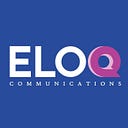Marketing 101 for emerging markets
Being Singaporean is a curious thing. Based in the centre of Southeast Asia, we are a tiny developed country anchored in a less developed, culturally diverse region of the world — often referred to as “Asia Lite” for Western tourists who want to travel to the East. English is one of the four national languages so it’s easy to get around, and it’s clean and safe for visitors. Singapore’s often the starting point where one can easily travel to countries that are worlds apart, despite being just an hour’s flight away.
Marketing is closely tied to the culture in which you are trying to market ideas. As a citizen of a small country, it was only natural to look outward, so I tried my best to look for jobs with regional exposure. Thankfully, I’ve been fortunate enough to find those roles — especially my current one, which gives me fascinating insights into underserved and often overlooked markets from Yangon to Kathmandu.
Current affairs and politics
One of the global campaigns Viber ran early on when I first joined was a feature awareness video for Viber Polls, where we told users that they could now run polls in their group chats to decide where to eat, or what movie to watch with friends. If you use Viber, try it out here.
For fellow Singaporeans — yes, Viber still exists. Yes, it has a billion registered users globally and is used actively in countries mainly outside of Singapore. Yes, it’s that purple calling app. The world is thankfully much bigger than just Singapore. Moving on!
Though I really liked the video and knew what it was trying to achieve, warning bells immediately went off in my head. For many of the countries we work in (and regardless of political affiliation), democracy is considered a highly sensitive topic. Vietnam is officially a one-party socialist republic. Cambodia is a constitutional monarchy. Other countries have had unpleasant histories of social uprising and unrest associated with democracy.
I feared backlash should the patriotic music and text be seen as offensive, so we pulled the video for our region, and edited local press releases so as not to rouse local sensitivities. The importance of understanding local culture and politics, due to the hyper-connected nature of modern markets, has become absolutely crucial for any marketer.
Trust = actual face time
I have regional colleagues based in Colombo to Manila, and global ones from Bulgaria to Tel Aviv. My team manages 35 partner local agencies handling everything from on-ground events to digital marketing — and for most of them, English isn’t their first/working language. As you can imagine, any sort of coordination across time zones takes the kind of organisational finesse needed to run a small country.
Thankfully, I’ve been incredibly lucky to have met strong teammates who understand the challenges and are willing to step in to assist or offer insights when needed. I’m also not expected to just work remotely with people — there are always regular flights to meet in person. Nothing beats actual face time in any culture, particularly Asian ones which rely less on direct authority and more on informal, interpersonal connections. For more on this, I highly recommend The Culture Map by Erin Meyers for additional reading on how cultures interact.
Thinking back, it honestly wasn’t awards won or executing successful projects that stick out in my mind, but more so memories of attending an Israeli colleague’s wedding and being hugged by his beaming wife at the huppa, of my Filipino colleagues helping me order adobo and kaldereta at local restaurant Manam, or the time when my Jakarta colleague bought me packets of hard-to-find Indomee without asking, or a South African colleague offering to help my siblings and I plan a trip to her continent. It’s really the genuine friendship and mutual affection that rises out of a working relationship that I find incredibly fulfilling in a world that’s more connected than ever.
Finding commonality across borders
During one of our team calls, my Nepalese colleague shared that she was looking to partner with a recycling company, and then asked us whether we had any similar hyperlocal recycling programmes in our own countries.
I struggled, wondering how to explain the concept of the Singaporean rag-and-bone man, also locally referred to as karang guni. I expected confused silence as I spoke haltingly, realising that it sounded quite strange put into words even thought it was a completely natural part of my childhood.”Well, here we have this guy who goes around honking with a horn, and shouts for people to bring their cardboard and other recyclables down to exchange them for cash in local dialect-” I was interrupted by a flurry of excited noises from colleagues in the Philippines, Cambodia, Sri Lanka and India who all shared that there was a similar equivalent in their own countries.
It was surprisingly nice to discover, despite all our vast and fragmented differences in languages and food and culture, that the simple idea of a rag-and-bone man connected us across the region. The blog was article originally published on EloQ’s blog.
By Nicholas Tan, Regional Marketing Manager at Rakuten Viber, first published on his LinkedIn. Viber has been a client of EloQ Communications (formerly Vero IMC Vietnam) since 2016.
